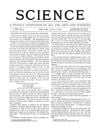 November 1983 in “American Biology Teacher”
November 1983 in “American Biology Teacher” Pattern baldness is likely caused by a dominant gene influenced by testosterone levels, making it more common in men.
 69 citations,
April 2017 in “BMJ open”
69 citations,
April 2017 in “BMJ open” Many people with alopecia experience high levels of social anxiety, anxiety, and depression, and while wigs can boost confidence, they may also cause anxiety.
 37 citations,
April 2013 in “Plastic and Reconstructive Surgery”
37 citations,
April 2013 in “Plastic and Reconstructive Surgery” Genetic and environmental factors, like smoking and exercise, affect male hair loss.
 30 citations,
December 2017 in “Medical Hypotheses”
30 citations,
December 2017 in “Medical Hypotheses” The model suggests that scalp tension could lead to hair loss, with factors like blood vessel hardening, enlarged oil glands, and poor microcirculation also playing a role. It also hints at a possible link between skull shape and baldness pattern.
 27 citations,
September 2017 in “Journal of Medicinal Food”
27 citations,
September 2017 in “Journal of Medicinal Food” Annurca apple supplement safely increases hair growth and keratin in humans.
 23 citations,
January 1997 in “Computers and Composition”
23 citations,
January 1997 in “Computers and Composition” To stop online sexism, both men and women need to change how they act.
 21 citations,
November 2012 in “Plastic and Reconstructive Surgery”
21 citations,
November 2012 in “Plastic and Reconstructive Surgery” Both genetic and lifestyle factors significantly affect female hair loss.
 19 citations,
October 2020 in “Journal der Deutschen Dermatologischen Gesellschaft”
19 citations,
October 2020 in “Journal der Deutschen Dermatologischen Gesellschaft” Hair loss can lead to significant stigma and lower quality of life, especially for women and those with certain types of alopecia.
 11 citations,
March 2021 in “Dermatology and therapy”
11 citations,
March 2021 in “Dermatology and therapy” Researchers created a new tool to measure the effects of alopecia areata from the patient's view, focusing on hair loss, daily life, and emotional health.
 10 citations,
January 2010 in “PubMed”
10 citations,
January 2010 in “PubMed” Adjuvants, diet changes, and laser therapy may improve male pattern hair loss.
 9 citations,
June 2014 in “British Journal of Dermatology”
9 citations,
June 2014 in “British Journal of Dermatology” The study found that balding scalps have more thin hairs and larger oil glands, which might contribute to skin conditions related to hair loss.
 7 citations,
November 1987 in “Pharmacotherapy: The Journal of Human Pharmacology and Drug Therapy”
7 citations,
November 1987 in “Pharmacotherapy: The Journal of Human Pharmacology and Drug Therapy” Minoxidil can help thicken hair in some people with male pattern baldness, especially if used early and continuously.
 2 citations,
January 2017 in “Journal of Pigmentary Disorders”
2 citations,
January 2017 in “Journal of Pigmentary Disorders” Genetics, stress, and health issues can cause early hair greying, which affects self-esteem, and there's no cure, only hair dye.
 June 2024 in “Frontiers in pharmacology”
June 2024 in “Frontiers in pharmacology” 2-deoxy-D-ribose gel may help regrow hair in cases of hair loss.
 March 2024 in “Frontiers in reproductive health”
March 2024 in “Frontiers in reproductive health” Women of color in Northern Manhattan view hair care as important to their identity and culture, and education on harmful chemicals in hair products is needed.
 July 1994 in “Annals of Pharmacotherapy”
July 1994 in “Annals of Pharmacotherapy” Cromolyn sodium's effectiveness for treating asthma in children under 2 is unclear, possibly more beneficial for older children, and further research is needed.
 October 1890 in “Science”
October 1890 in “Science” Pilocarpin can cause hair regrowth and color change in some cases but not in others, and it may have side effects in animals.
 October 2014 in “Aktuelle Dermatologie”
October 2014 in “Aktuelle Dermatologie” Older men with scalp wounds had long-term healing problems after using imiquimod or diclofenac for skin cancer prevention.

Wearing a toupee makes men seem more attractive and slightly healthier, but doesn't change how confident they appear.
 January 2022 in “Springer eBooks”
January 2022 in “Springer eBooks” Platelet-rich plasma (PRP) is a promising treatment for hair loss, believed to extend the life cycle of hair follicles and prevent their shrinkage.

Taller men are seen as more attractive, and hair loss negatively affects attractiveness.

Melampus might have cured Proetus' daughters, who possibly had ergotism or Cushing's syndrome, using the herb Helleborus niger, but a mix of factors could have caused their symptoms.
5 citations,
January 2016 in “Open Journal of Regenerative Medicine” Myoblast transplantation shows promise for treating various muscle and heart conditions.
 January 2024 in “Journal of health reports and technology”
January 2024 in “Journal of health reports and technology” There's a significant link between the severity of Seborrheic Dermatitis and the pattern of hair loss in people with a family history of hair loss.
9 citations,
July 2016 in “Genes” Genetic variants in PDE6H and LPAR6 cause vision impairment and hair loss in two Pakistani brothers.
 1 citations,
December 2024 in “Qeios”
1 citations,
December 2024 in “Qeios” Hair loss affects attractiveness but can suggest intelligence, and face perception is complex, involving factors like age and smile.
1 citations,
February 2024 in “Diversity” African plants can treat hair issues and may help with diabetes.
 1 citations,
March 2023 in “Frontiers in Medicine”
1 citations,
March 2023 in “Frontiers in Medicine” Topical prostaglandin analogs may help with hair growth but more research is needed.

Men with hair loss are seen as less attractive and shorter, and height is a key factor in attractiveness ratings.
 November 2023 in “Plastic and Reconstructive Surgery – Global Open”
November 2023 in “Plastic and Reconstructive Surgery – Global Open” Americans see hair transplants as valuable for treating hair loss and want them to be more affordable and tailored to each gender.



























